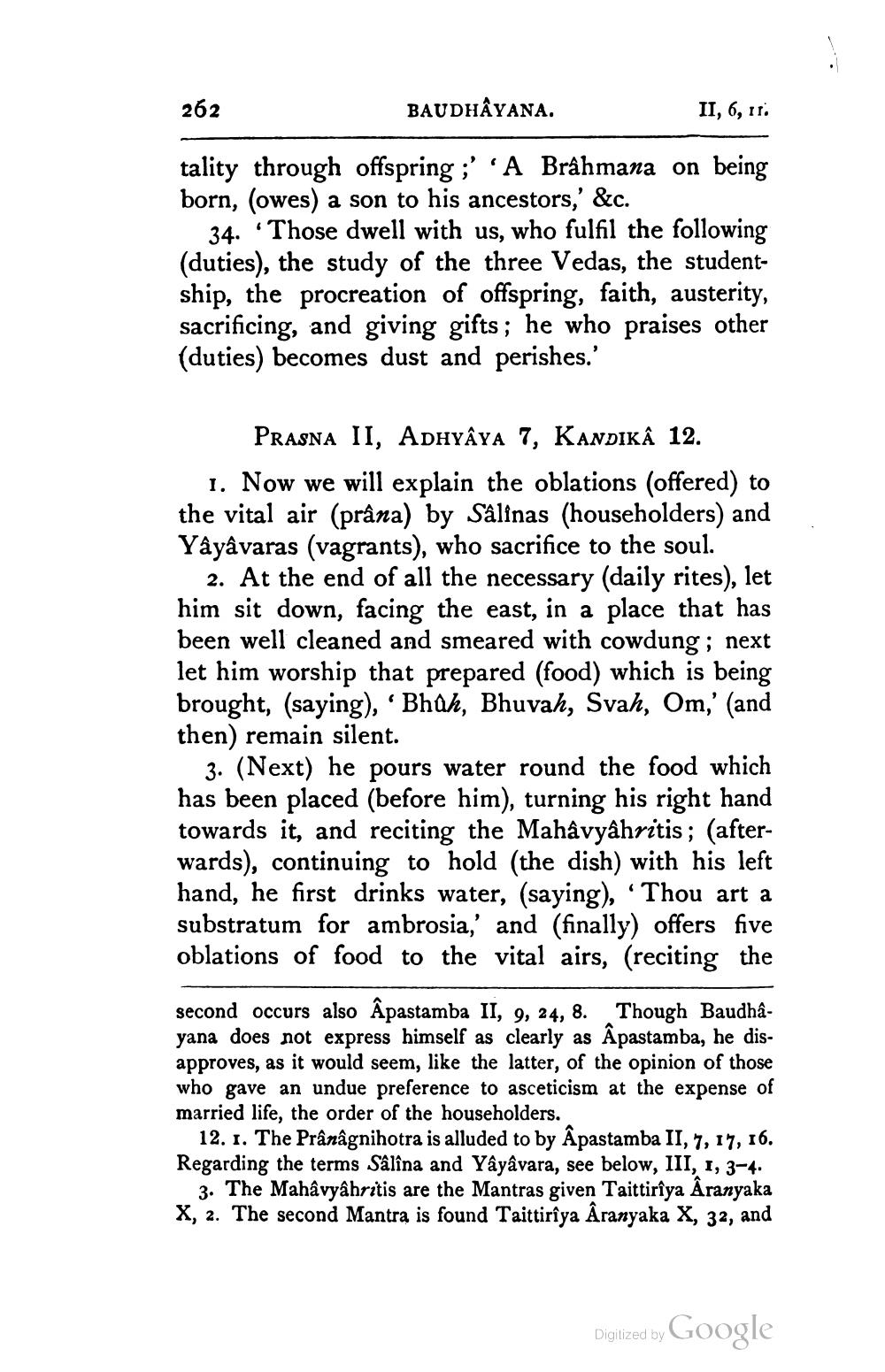________________
262
BAUDHAYANA.
II, 6, 11.
tality through offspring ;''A Brâhmana on being born, (owes) a son to his ancestors,' &c.
34. Those dwell with us, who fulfil the following (duties), the study of the three Vedas, the studentship, the procreation of offspring, faith, austerity, sacrificing, and giving gifts; he who praises other (duties) becomes dust and perishes.'
Prasna II, Adhyâya 7, Kandik 12. 1. Now we will explain the oblations (offered) to the vital air (prâna) by Salinas (householders) and Yâyâvaras (vagrants), who sacrifice to the soul.
2. At the end of all the necessary (daily rites), let him sit down, facing the east, in a place that has been well cleaned and smeared with cowdung ; next let him worship that prepared (food) which is being brought, (saying), ' Bhuh, Bhuvah, Svah, Om,' (and then) remain silent.
3. (Next) he pours water round the food which has been placed (before him), turning his right hand towards it, and reciting the Mahâvyâhritis; (afterwards), continuing to hold (the dish) with his left hand, he first drinks water, (saying), “Thou art a substratum for ambrosia,' and (finally) offers five oblations of food to the vital airs, (reciting the
second occurs also Âpastamba II, 9, 24, 8. Though Baudhâyana does not express himself as clearly as Âpastamba, he disapproves, as it would seem, like the latter, of the opinion of those who gave an undue preference to asceticism at the expense of married life, the order of the householders.
12. 1. The Prânâgnihotra is alluded to by Âpastamba II, 7, 14, 16. Regarding the terms Sâlîna and Yâyâvara, see below, III, 1, 3-4.
3. The Mahâvyâhritis are the Mantras given Taittirîya Aranyaka X, 2. The second Mantra is found Taittirîya Aranyaka X, 32, and
Digitized by Google




